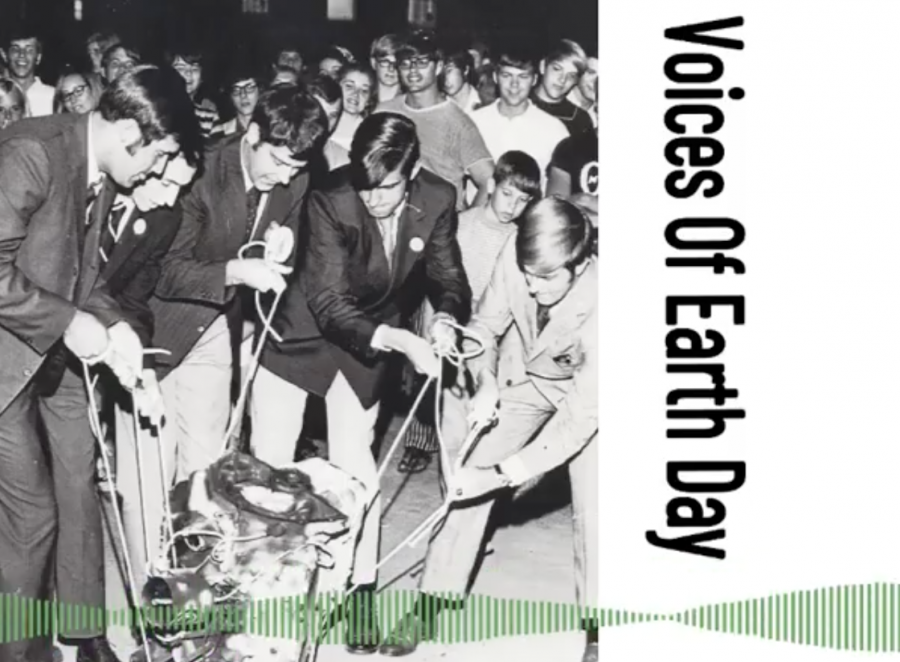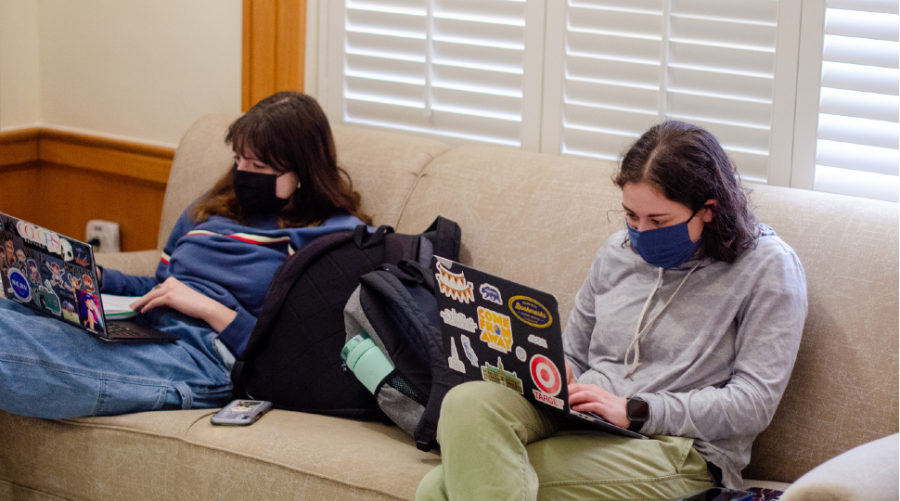Although students are unable to celebrate Earth Day in person as usual this year, the Office of Sustainability has worked hard to provide engaging virtual content to unite the university community in the spirit of appreciation for our planet during Earth Month.
The Office of Sustainability always creates engaging Earth Day events for students, faculty and staff, though the actual format of the celebration on campus has ranged from weeklong or month-long events to a massive fair on Earth Day. This year, due to the outbreak of COVID-19 preventing the university from operating in-person classes and events, the Office of Sustainability decided to make Earth Day (and Earth Month) celebrations virtual.
This is a big year for Earth Day, especially at Wake Forest. The year 2020 marks the 50th anniversary of Earth Day since it was officially recognized as a national holiday in 1970. The university is also celebrating the 10th anniversary of the Office of Sustainability and the Center for Energy, Environment and Sustainability. Additionally, it is the 25th anniversary of the university’s Environmental Program. This year also marks the addition of two new majors to the Environmental Program, a Bachelor of Arts in Environment and Sustainability and a Bachelor of Arts in Environmental Science, either of which can be declared by students beginning in the fall semester of 2020. Finally, it is also the fifth year of the university’s Sustainability Graduate Programs.
This year’s theme for Earth Month is “Scaling Up Solutions for Climate Action.” The theme emphasizes the climate action solutions proposed in Project Drawdown, many of which are currently being implemented at the university.
“We decided to make it bigger and more inclusive of all of the celebrations, but also to show the heavy lift that has to be done for all of us to come together to work hard and implement climate solutions and take action for the climate and the crisis that we’re currently in,” said Erin Stephens, the communications and event coordinator of the Office of Sustainability.
During spring break, when it became clear that the university would not be operating as normal going forward, Stephens and her colleagues knew they had to shift Earth Month into a virtual experience.
The kickoff event for Earth Month was originally going to be the annual Spring Garden Festival to celebrate the spring equinox on March 22. Although it could not be held in the same fashion this year, the Office of Sustainability decided to turn this event into a virtual garden tour. Faculty showed the video to students as a part of their remote coursework, since many of the students would have toured the garden during Campus as Lab experiential learning opportunities if classes had been held in person. It was also a way for members of the university community to connect with the campus garden, regardless of where in the country or world they were tuning in to the video.
Another revised Earth Month event was the dance production titled “Breathe,” which was organized and choreographed by senior Monet Beatty and promoted by the Office of Sustainability. The performance, which combined arts and themes of sustainability, was supposed to be held in person on April 9.
“[Beatty] was the catalyst, the choreographer [and] the vision behind the whole dance production,” Stephens said. “It was a collaborative effort between dancers in the community and at Wake Forest to connect sustainability and the arts.”
Although the physical production of “Breathe” had to be canceled, Beatty decided to make a short documentary that takes viewers behind the scenes into her process of creating and developing this work of art.
“In a small way, I wanted everyone involved to know that the purpose of the event could still be realized, and that while the date for the show is scheduled for sometime in the future, every contribution to this work was appreciated and significant. Thus, ‘The Making of Breathe’ was born as a placeholder for what is to come in the future, and the work that can be done daily to ‘join the movement,’” Beatty said.
Other virtual Earth Month events included a virtual panel discussing climate solutions for North Carolina, videos of sustainable tips from Green Team captains, who are faculty and staff that incorporate sustainability into their work and lives and articles discussing the importance of being sustainable during the COVID-19 pandemic.
Virtual Earth Month finished with a grand finale on April 22, Earth Day. The Office of Sustainability promoted the celebration on their Facebook and Instagram pages.
One special feature unveiled on Earth Day was a student podcast collection titled “Voices of Earth Day.” The project was created with students in Professor Ivan Weiss’s spring 2020 journalism class titled “The Art of Audio.” The podcasts include interviews of university community members of all ages, some of whom have graduated and one who has not.
All six interviewees showcased their shared passion for the environment and deep connection to Earth Day’s significance. Three of the interviewees, Tracy Lounsbury, Gary Gunderson and Rev. Mike Aiken, were all on campus when the first Earth Day was celebrated in 1970.
Additionally, the @sustainablewfu Instagram account engaged followers by posting questions like “What plant-rich meals have you been cooking at home?” and “How are you celebrating Earth Day today?” and featuring student responses on the Instagram story. Other university Instagram accounts, such as the Wake Forest Magazine, Campus Recreation and the OPCD, also shared posts celebrating Earth Day.
In this new rendition of Earth Day, Stephens reflected how the collaborative effort of the community resulted in a unifying and powerful call to climate action despite the inability to share Earth Day in person together.
“The beauty of Earth Day is that, when it began half a century ago, it was built on the power of collective action,” Stephens said. “So now, even as we feel separate and feel apart, I think keeping the spirit alive virtually and creating opportunities for connection in a new way that calls people to action in this profound nexus of two global crises (COVID-19 and the climate crisis) is very important. I think it’s important to celebrate how far we’ve come, but also to acknowledge how far we still need to go.”
















